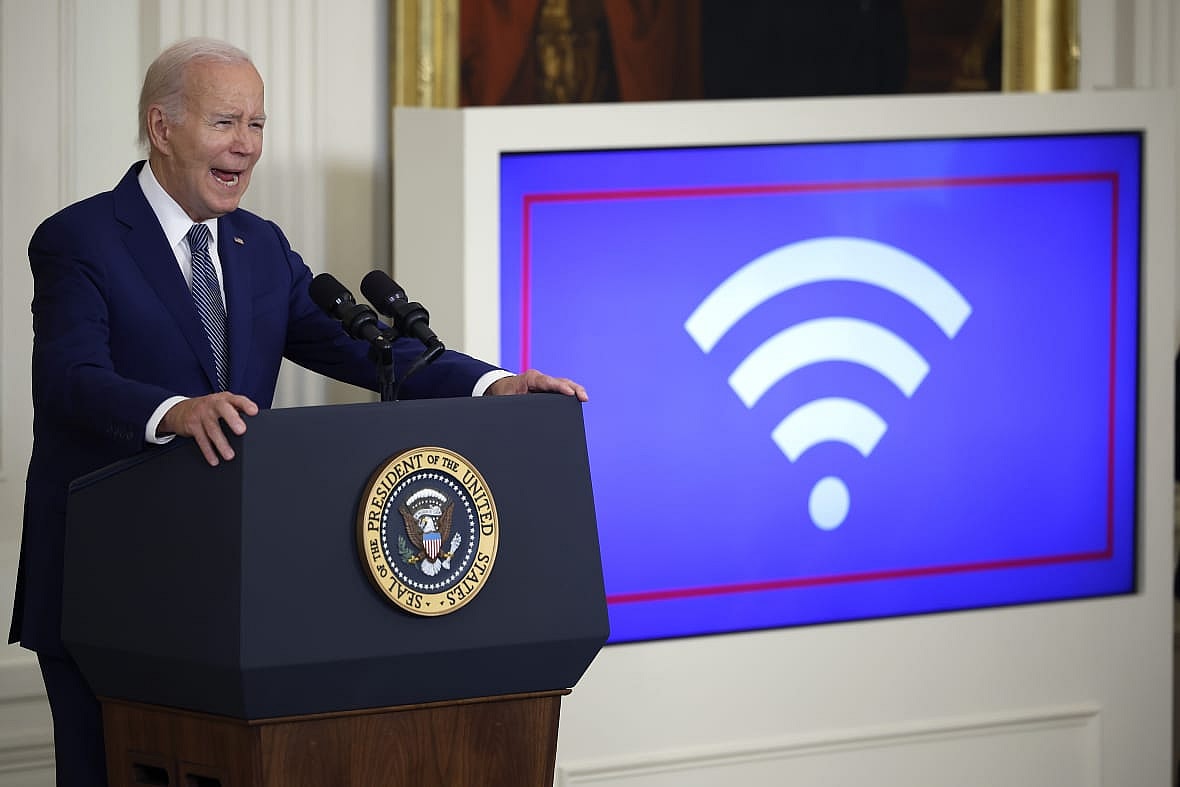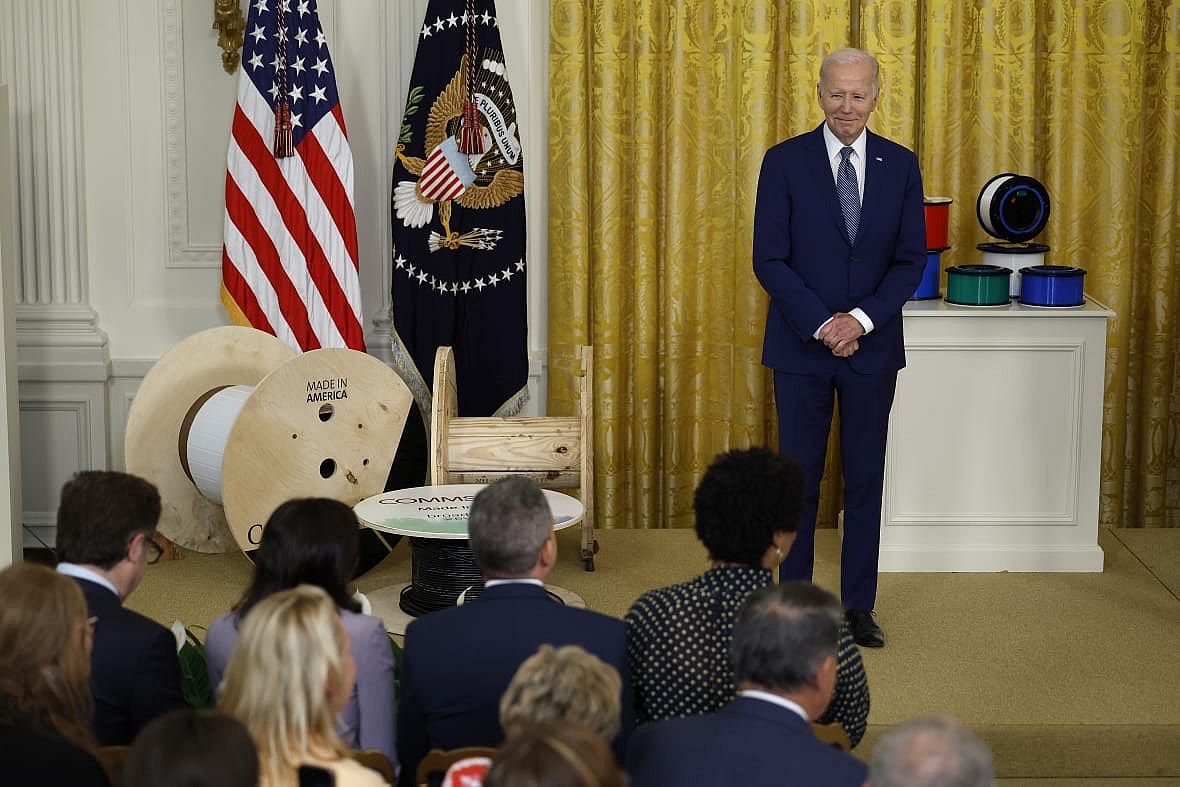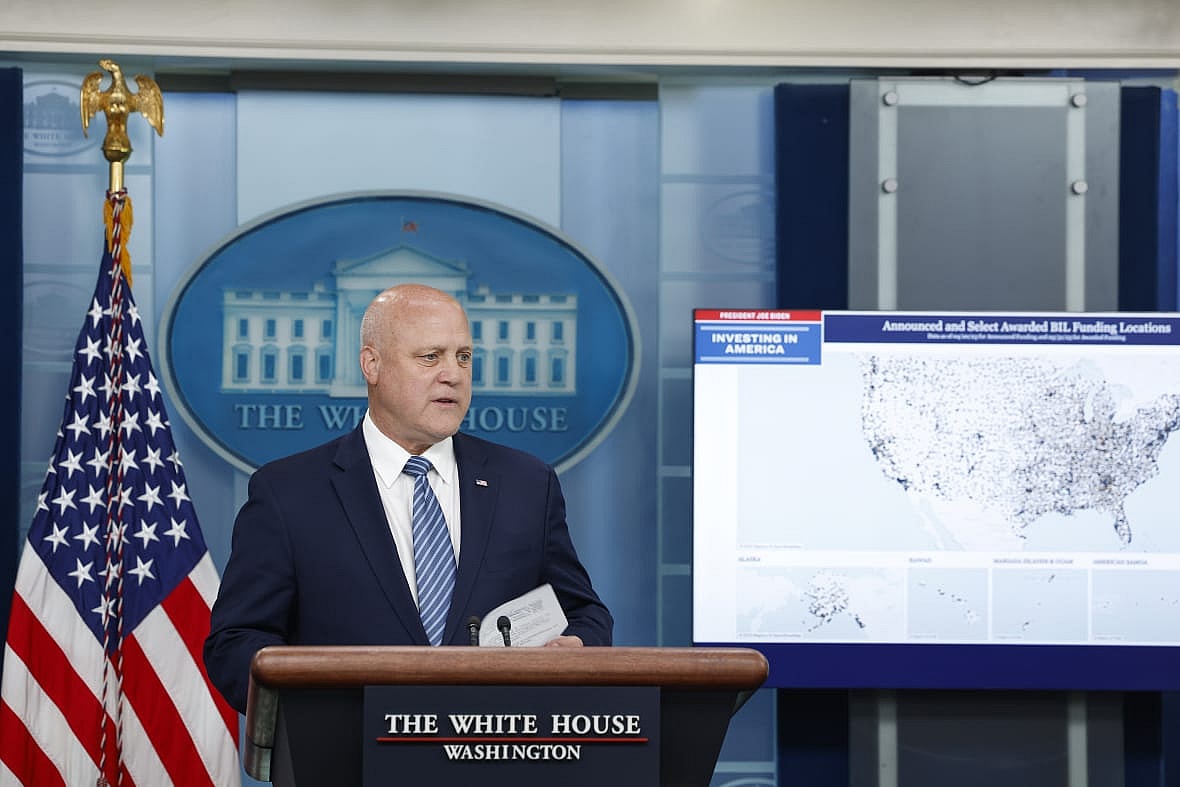The White House announced on Monday an investment of more than $40 billion toward connecting urban and rural communities to affordable high-speed internet, an initiative the Biden-Harris administration has been rolling out with funding from key legislation signed into law by President Joe Biden.
President Biden and Vice President Kamala Harris delivered remarks inside the White House East Room to highlight the new investments, which will be distributed across all 50 states, Washington, D.C., and U.S. territories. The billions of dollars are going toward the administration’s Broadband Equity, Access, and Deployment (BEAD) Program.

The investments, funded by the Infrastructure Investment and Jobs Act, will build high-speed internet infrastructure in communities without access and make it less costly for low-income Americans who struggle to afford it.
During her remarks, Vice President Harris highlighted Sunset, Louisiana, a small rural majority Black community that she visited last year.
“Almost 40% of households in that area do not have high-speed internet, in large part because the fiber optic lines that connect most Americans to the internet just never made it [there],” said Harris.
Due to the lack of access to high-speed internet, many residents in Sunset are unable to apply for remote jobs, entrepreneurs struggle to start or grow small businesses, and students often have to turn to public buildings and parking lots to submit school work. Those examples, the vice president noted, were similar to other communities across the United States.
“Twenty-four million people in our country do not have access to high-speed internet, either because they cannot afford the monthly cost of a plan or because they live in communities that have not yet been fully connected to fiber optic networks,” said Harris.
President Biden boasted that Monday’s announced investments would help his administration reach its goal to connect every person in America to reliable high-speed internet by 2030. He also noted that building out the nation’s high-speed internet infrastructure is also aiding in his broader economic agenda to create more good-paying jobs in America. As an example of that growth, the president noted that the International Brotherhood of Electrical Workers (IBEW) union is putting thousands of people to work to lay fiber optic cables across the country.

Even as the federal government assists with connecting historically disconnected American households to high-speed internet, many, particularly in Black and brown low-income communities, remain unable to afford it.
The Biden-Harris Administration’s Affordable Connectivity Program, also funded by legislation signed by President Biden, secured commitments from at least 20 internet providers to offer eligible households high-speed internet plans for no more than $30 per month, and for some eligible families, no cost at all. The program also allows eligible families to get discounts on laptops, desktop computers, or tablets. Eligibility includes households with low income or receiving government assistance like SNAP, Medicaid, Pell Grants, federal public housing assistance, and other programs.
While most American households have access to high-speed internet, more than 20% of the U.S. population does not, according to the most recent U.S. Census data. For example, a study from the National Library of Medicine found that areas with high percentages of Black residents had lower broadband access, including 54.9% of those in rural communities.
Mitch Landrieu, senior adviser to President Biden and White House coordinator for the Infrastructure Investment and Jobs Act, told theGrio that the administration is tracking geographically where African-Americans live predominantly and determining the allocations of federal dollars accordingly. For example, $1.4 billion is going to Alabama, $1.3 billion is going to Louisiana, and $1.5 billion for North Carolina and Michigan.

“We know this from the demographic data that a large portion of the African-American community is living at or below the poverty level in states that have been underserved,” he told theGrio.
Landrieu shared that nearly 19 million Americans have signed up for the Affordable Connectivity Program. The White House is working with the Federal Communications Commission and members of Congress to ensure that the public knows to sign up at GetInternet.gov.
During his remarks on Monday, President Biden described his administration’s investment in high-speed internet as “historic,” comparing it to transformational investment spearheaded by former President Franklin D. Roosevelt.
“What we’re doing is … not unlike Franklin Delano Roosevelt, when he brought electricity to nearly every American home and farm in our nation,” said Biden. “Today, Kamala and I are making an equally historic investment to connect everyone in America.” He added, “We’re not gonna leave anyone behind.”

Gerren Keith Gaynor is a White House Correspondent and the Managing Editor of Politics at theGrio. He is based in Washington, D.C.
TheGrio is FREE on your TV via Apple TV, Amazon Fire, Roku and Android TV. Also, please download theGrio mobile apps today!

